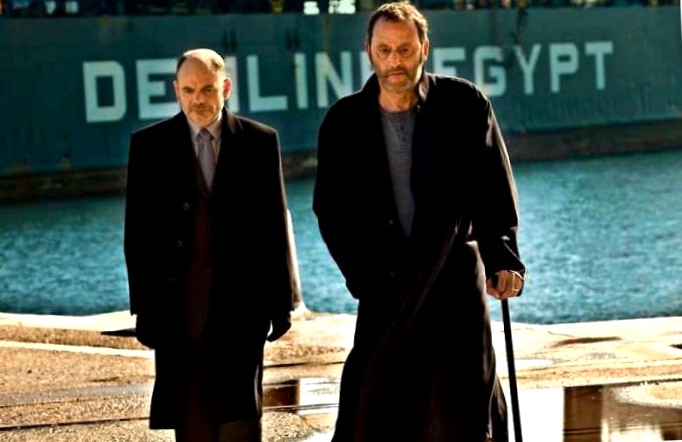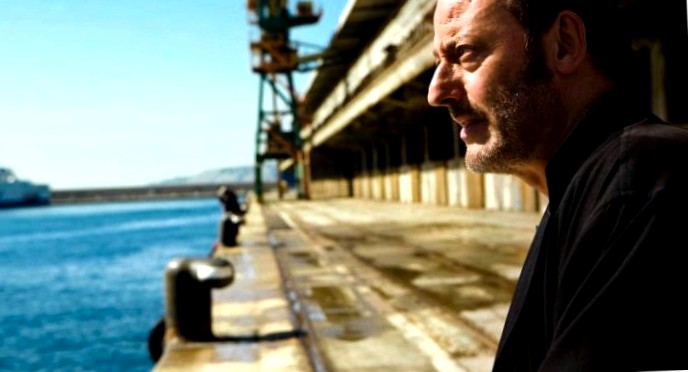
All pictures: Wild Bunch Germany
Dying and surviving in Marseille: "22 bullets"
A moral story. She is from the arrogance that comes before the case, and is not broken after him yet. It is about that you first have to learn humility before you can win. A moral story, but only a archaic. Women do not occur in this movie. Or just on the edge. They are mother and daughter and wives, so widows. Early or later. If you can see the trailer for Richard Berries French Mafiafilm "22 Bullets"; just hate what it’s about, then pretty much about this movie. Apart from that Jean Reno plays the lead role, and that the film in France attracted far over 1 million viewers to the cinema. If you have seen him, you know why.
Only Ludwig XIV. has understood Marseille. He love the wall plants and the cannons of St. Jean and St. Nicholas aims at the city. That was a clear announcement at that time. Do you know what his motto was: it is always the impatience to win, which leads to the defeat.
The Policeboss in "22 bullets"
At the beginning of death. An opera aria, "E lucevan le body" sound. It comes from the third act of Puccinis "Tosca" and she is about the preparation for death that is filled with the love of life. A death welter sings the song, he has to die, like all in the opera. Also in this movie, many are dying, and here again, the opera acts as a power plant of the sitting, one that drives the cinema, though the cinema does not have to do so,.
A father ride along with his little son at the Sudfranzosic Kuste, reached Marseille. Both sing the aria. A few minutes later, the father, Jean Reno plays, 22 balls in the body. Already here, in the few minutes of the beginning, unfolded "22 bullets" A surprising intensity. He stops his tension. Nothing is Cheasy, everything appropriate. In the context of the expected, but at the upper limit. The pictures are stylish, the cut is fast, the music is coming to the foreground. Everything a bit intrusive, something vulgar, but very good. The sliding, better: The massacre at the beginning, the elongrest is progressing, and with which every viewer expects, is a bit too long, a bit too elegantly staged.
Then everything is cut more economic, incredibly smart and multi-layered and elegantly, at the same time on three levels, and in the backlapping one understands, which is already at the first tones of the "Tosca" Had to be clear: Even if this is a film from France, you have to look at him with the same eyes, with which you also look at a movie of John Woo or since the middle of the 1990s by Johnnie to. Everything is bean, ie opera, ballet, choreography, the plot only staffage. Still seriously, because it’s about the production deeper.
"Blood does not dry"
A man lying in dying thinks back. But Gotteldank is not a backlog, but Reno, who is called Charly Mattei, just lives on and is reminiscent of what we need to know to understand the action:
I have a funny job. Once there it is. You can not get out anymore. It’s a curse. You are dramatically damned. And to crop to. Blood does not dry.
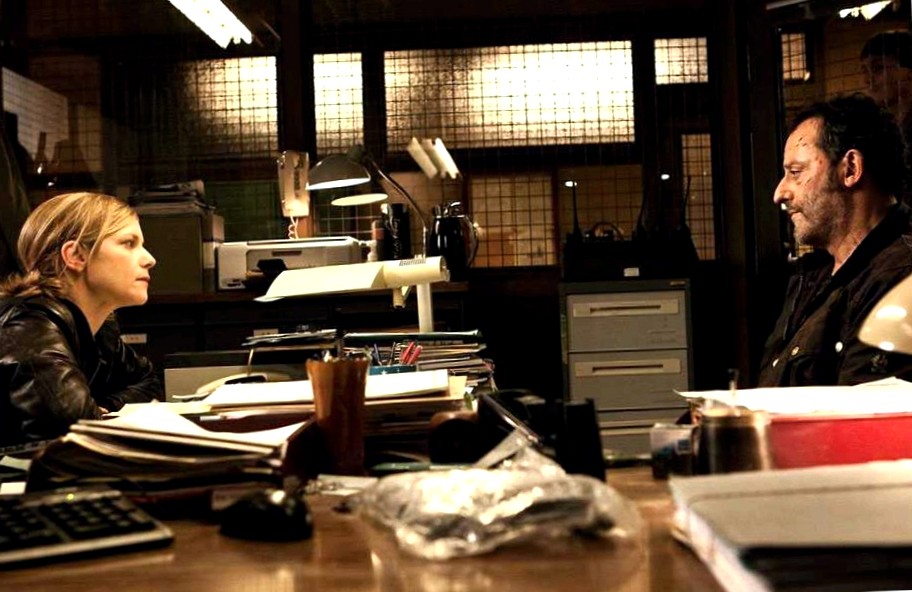
Then the memory of the old voice of an old Mafiosi mixes in: "Blood does not dry, smaller. Never. You will be scared your life long. If you are not watching, you’re on it. The caught interrupts the game only. You are because of a stupidity here. Thank you for your destiny. In a month you are drabs. Forget it and live as a freelance man. Believe me smaller. It’s nothing good to be on our site."
Naturally, Charly was still one of them. Because soon after he was free again, the 85-year mafia fuhrer was shot dead, a cycle of revenge used, and Charly weathered the unique opportunity. Three friends involved themselves, and the murder at the murder of the godfather served them as an initiation.
The women, as I said. The policewoman, who should start the attack on Charly, also like operas. Her husband is dead, shot of any gangsters.
"Bang me, but not on behalf of your Scheibsmoral"
Charly breaks out and chases those who wanted him dead because his right hand has been taken, he has to do everything left. There are persecutionjars and many dead; Full of soul rest, Charly equals the murder attack, red roses on a bright tombstone and a bloodlike. Again, this movie opera, John-Woo cinema, admitted: John Woo for arms — but because it’s just John Woo, that’s still a lot.
And please also admitted: In Europe, only a few can tell something with fast cut and pure image sequences without losing the overview or embarrassing. On average and camera hardly something is to be suspended, and only in the last quarter lose film and director and the office for taste protection sometimes control, and everything is a bit very over the top. Since the opera becomes the operetta.
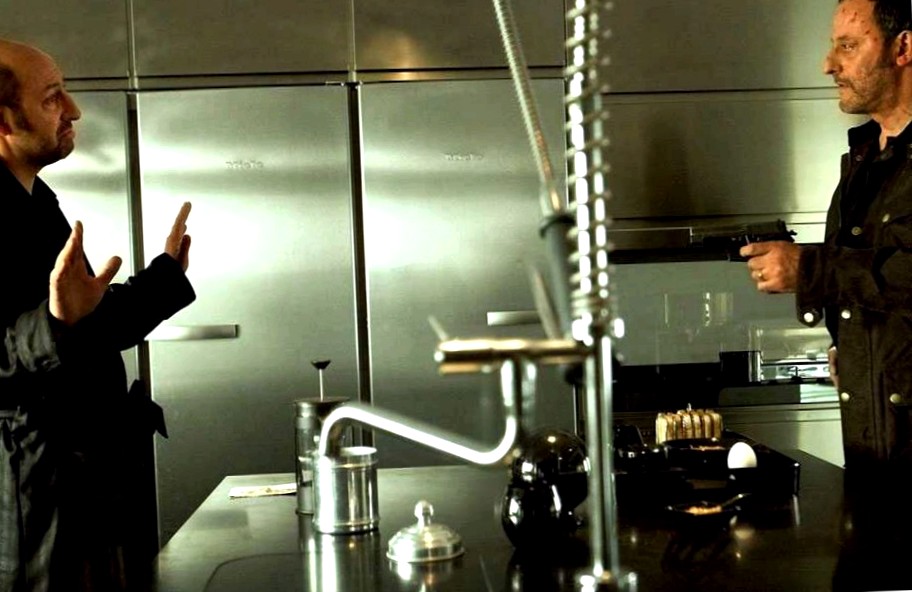
But then again the picture of Sarkozy in the Buro of the police chief like a blow. And if you barely expect it, this film becomes a philosophical discourse, when Charly, the Racher finally meets Zac, his old buddy, who, as you had to know, was that the Horscher sent:
"Understand? What do you want to understand?" Says Zac. "You are lanning, pushing a quiet ball, judging over others. I, I’ve been ticking. … You believe you are different, Charly. Better. But we acknowledge us. You are not better. We both turned crooked things. People had to die. You can not explain that. You have like me blood on the hands. That’s not gone. You are on the wrong side. One who violated rules. So it’s nothing to me. Bang me, but not on behalf of your Scheibsmoral. Your selective morality: Erpreng yes, drugs no. Revenge yes, but do not touch the family. Push yes, but not on policemen. That’s folklore. Bose remains bose. You have to accept that."
As I said: That’s a moral story. And you can reconse Zac? And then: "You bring me around because you do not yield the truth." "I’ll bring you around because you betrayed me", Believes Charly, but Zac disarms him with his next incredible sentence: "Not thinking long, otherwise it will not."
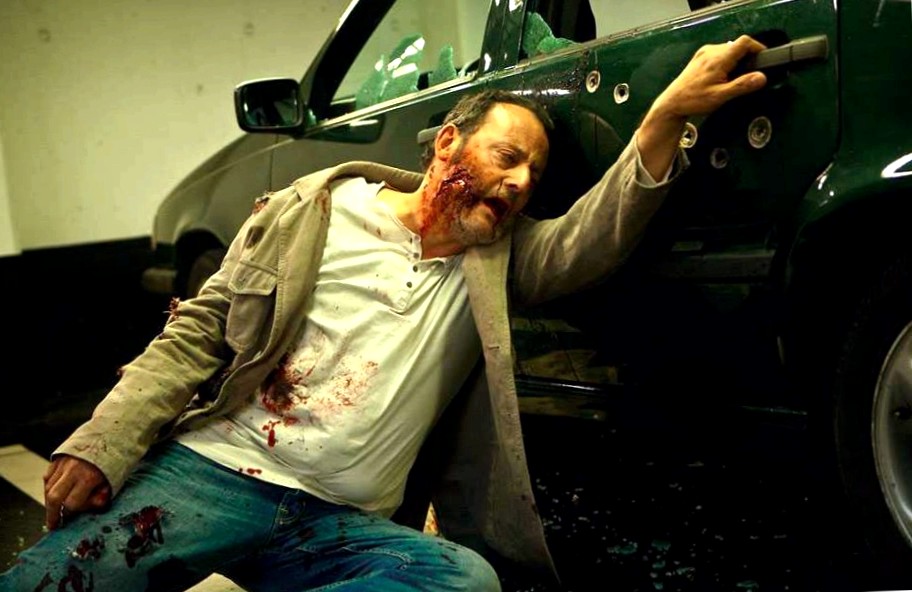
Zac has scored Uber Charly. Because life, in which Charly returns to the assassination, is exactly what he wanted to back up at any prize. Dying and surviving are not a clean thing.
To the lantern with the non-smoker
Richard Berry’s movie is a hard thriller. He is in the original "L’Immortel" and emerged after the equamamental novel of the Starjournalist Franz-Olivier Giesbert. His main character Charly in turn became inspired by the life of the Jacques "Mad Jacky" Imber. In 1929 he was born in the 1960s and 1970s one of the fancier Mafiosi — and a friend of Alain Delon, with which he was together with a trabenstall. After a murder attack by his main competitor in 1977 his right arm remained brown, and he learned to push with left. Eleven manner of his competitor were soon shot.
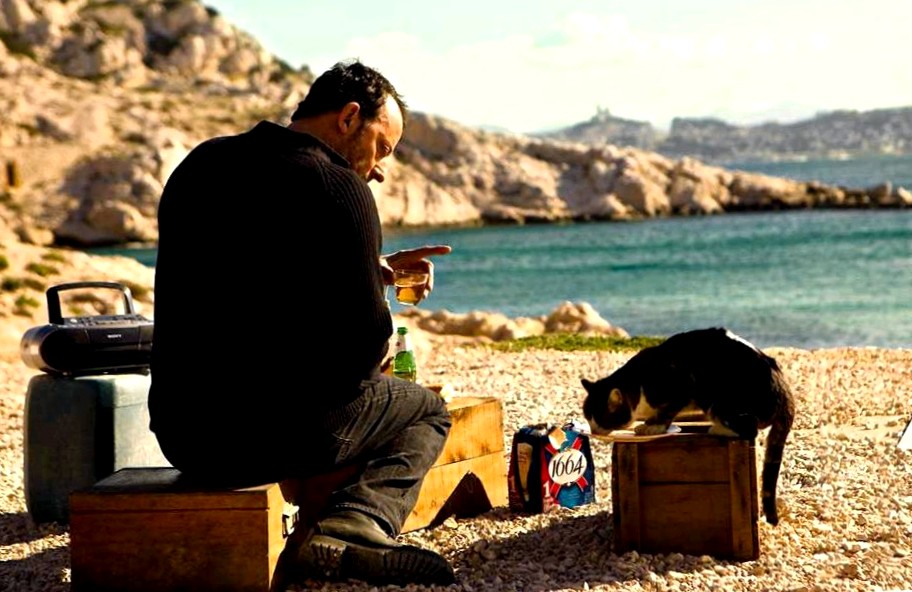
The Old Testament rules, clear, it’s not forgiveness, but about eye around eye. That has to learn that painfully. What for a Schnode morality of some critics, if you ask here anyway after the moral of the movie. Naturally, here, if one wants, a criminal stylized, whose past and present deeds are leveled by the moral fragility of his opponents. Yes and? Art is not a trial and the desire for justice always archaic. To the lantern with the non-smoker Zac, what else else?
At John Woo, no reasonable person became everyday project-famatic moral ies. And therefore one should also stick to the films of neurute and melville here, where you did not even dare to think.
The desire for justice is always archaic
